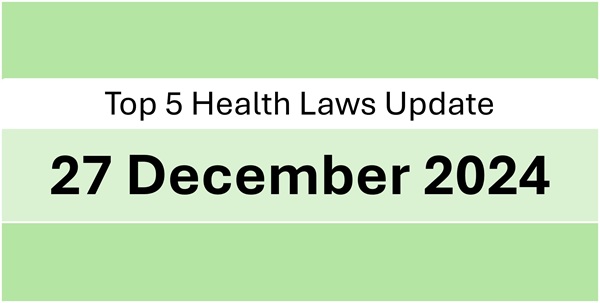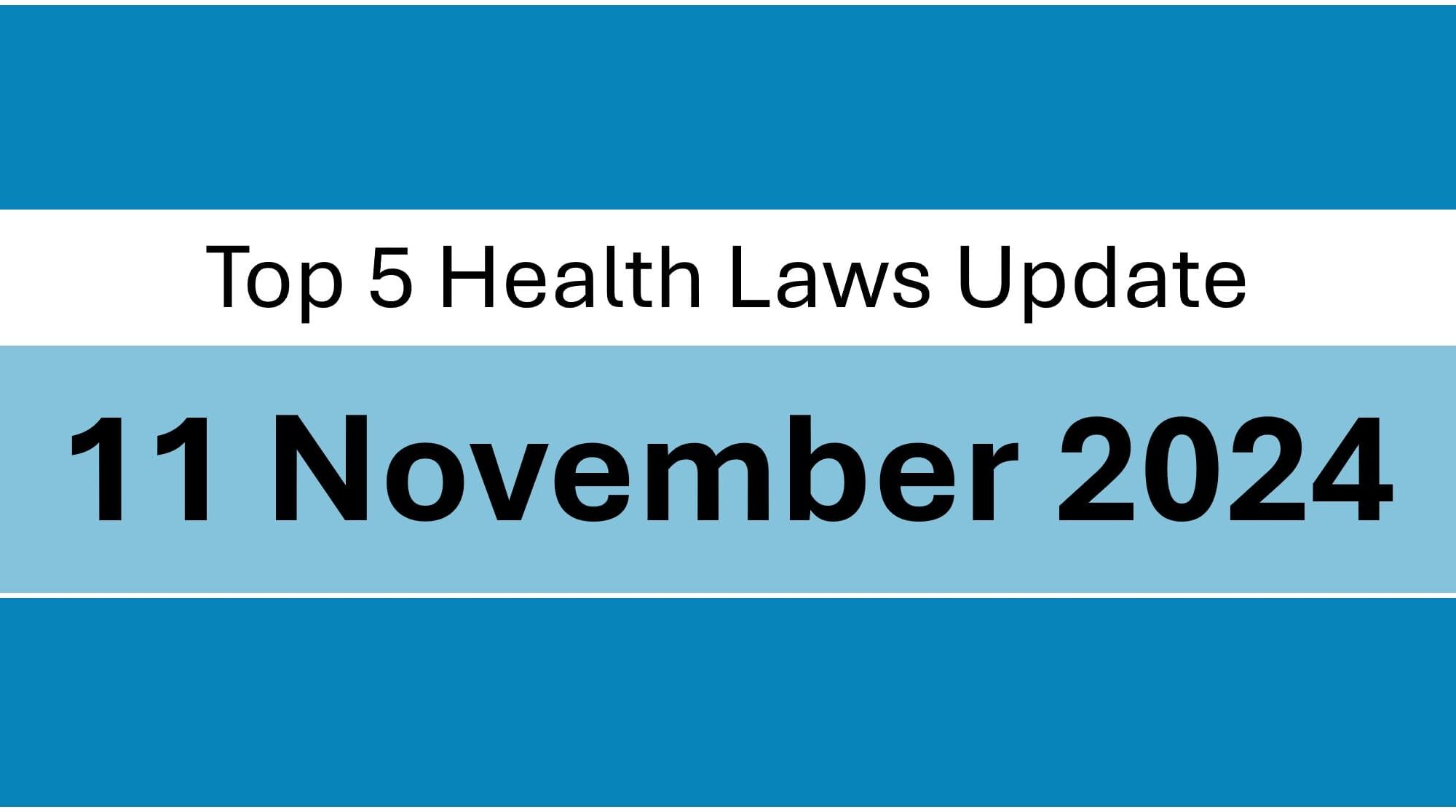Dear Readers, we are happy to share the most interesting legal and policy updates concerning health industry that we read today. we hope you enjoy reading it.
1. The Drugs Controller General of India (DCGI) has formed a committee to prosecute chemists and retailers involved in selling counterfeit and spurious drugs. Investigations revealed that these drugs are often procured from different parts of the country and the chemist or retail store claims to produce GST bills/ invoice of the drug which they have purchased. The committee’s findings are expected within a month.
Source: bit.ly/3DwaKCK
2. The National Green Tribunal (NGT) has sought responses from the Union Ministry of Environment, Forest and Climate Change, and the Union Ministry of Science and Technology on the adverse effects of Artificial Light at Night (ALAN) on humans, flora, and fauna. The query follows an application by Panchtatva Foundation highlighting ALAN’s disruption of natural biological processes.
Source: bit.ly/4gnLhdf
3. Indian pharmaceutical manufacturers are adopting advanced labelling solutions to enhance patient safety and compliance. Modern labels incorporate smart technologies for better tracking, error reduction, and regulatory alignment. This move becomes relevant in light of the fact that medication errors, affecting over 7 million people annually, are often linked to unclear labels. Cloud-based systems and automated verifications are also transforming pharmaceutical labelling by improving accuracy and ensuring real-time updates.
Source: bit.ly/4iRl5cG
4. The Parliamentary Standing Committee on Chemicals and Fertilisers has recommended enhanced incentives for fermentation-based plants to reduce import dependency on bulk drugs. The report noted China’s dominance in Active Pharmaceutical Ingredients (APIs) production, supported by robust infrastructure and economies of scale. The committee urged leveraging government infrastructure to establish additional plants and bolster domestic manufacturing.
Source: bit.ly/4fCq5iD
5. A new set of clinical guidelines has been introduced for evaluating patients with suspected Alzheimer’s disease or related disorders (ADRD), published by a special issue of the journal Alzheimer’s & Dementia: The Journal of the Alzheimer’s Association which highlights the new Alzheimer’s Association Clinical Practice Guideline for the Diagnostic Evaluation, Testing, Counseling and Disclosure of Suspected Alzheimer’s Disease and Related Disorders (DETeCD-ADRD CPG).The updated protocols aim to replace 20-year-old American guidelines and emphasize holistic care for cognitive-behavioural impairment caused by conditions such as Lewy Body Disease, Vascular Dementia, and Frontotemporal Lobar Degeneration
Source: bit.ly/3Dzc8V8


